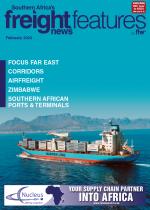Governments across Africa are trying to leverage the existing transport corridors to transform them into economic routes by adding value to the goods that are f lowing along them.At present little to no value is added across thousands of kilometres between the port and the place of origin or destination on most of the continent’s corridors.Opportunities are being created for third-party logistics, assembly and packaging by the opening of trade through the African Continental Free Trade Area (AfCFTA) and investments in ports, rail and road infrastructure across the continent. The opportunities have been detailed in a recently released study commissioned by Unctad and the Islamic Development Bank (IsDB) on the Trans-Saharan Road (TSR) corridor.The study, “Towards an economic corridor: Commercializing and managing the Trans-Saharan Road Corridor”, is the outcome of a project aimed at promoting trade through a regional transport corridor management mechanism.The TSR corridor, one of the oldest in Africa, comprises a 4 500-kilometre main road that links Algeria, Niger and Nigeria, with an additional 4 600 kilometres of highways connecting Chad, Mali, Niger and Tunisia. More than 80% of the corridor is paved or asphalted.“An economic corridor will enable TSR nations to move towards greater continental integration,” said Shamika N Sirimanne, Unctad’s director of technology and logistics. “This joint study considers ways of achieving this through greater connectivity, transit and trade.”“At the Islamic Development Bank, we believe that the Trans-Saharan Road corridor can unlock the untapped potential not only in the six en-route countries but also in the whole African continent,” said Riad Ragueb Ahmed, director of cooperation and capacity development at IsDB, who believes the TSR can be a major axis for development.

